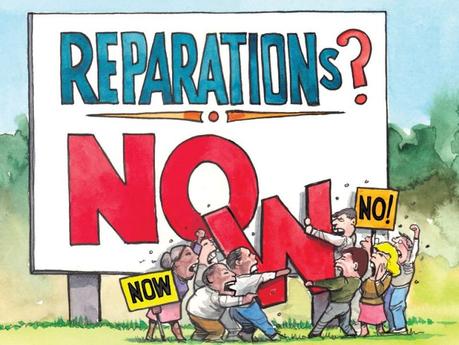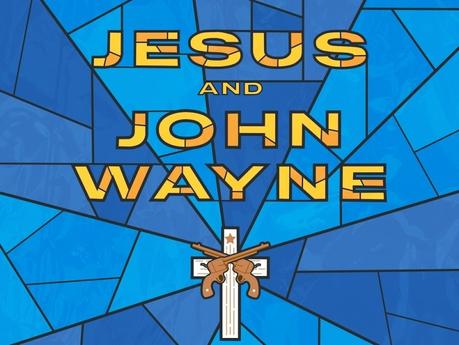A sermon preached at Broadway Baptist Church, August 1, 2021, and published as a column in Baptist News Global.
In my seminary days, I was taught that a good sermon or Bible study begins with a provocative question. So, when Nancy and I became pastors 41 years ago, I introduced a Sunday school class with the story about David, Bathsheba and Uriah the Hittite and asked: How could a guy with sins so grievous on his record be called “a man after God’s own heart”?
Deacon Dave scowled. “There’s no way a man who did such things could be a man after God’s own heart,” he said, as if this were the only conclusion a God-fearing man could draw.
Deacon Dave wasn’t trying to write his namesake out of the story. David is too ingrained in the biblical narrative for that. The great king gets more mentions in the Good Book than anyone else. After all, they called Jesus (who gets the second most mentions) “the Son of David.” Deacon Dave just thought the David story would be a whole lot better if the business about Uriah and Bathsheba went away.
An Old Testament professor named Pete Enns has a terrific podcast, “The Bible for Normal People.” He calls it “the only God-ordained podcast on the internet” (that’s supposed to be funny). Way back when Pete was a student at the arch-conservative Westminster Seminary in Philadelphia, a perplexed student asked a respected professor a question everyone was asking. If God is love, why is God so violent in parts of the Old Testament? “Well,” the professor replied, “God lets his children tell the story.”
God’s children tell the story in ways that make sense of their particular experience. Which is why there isn’t just one David story. In fact, scholars have identified four distinct David traditions.
Imperial David
First, there is what I call the Imperial David. The David of empire. In this story, David desperately wants to build a house for Yahweh, and Nathan the prophet gives him the thumbs-up. But then, Yahweh speaks to Nathan in a dream and the plan changes. “You aren’t going to build a house for me,” Yahweh tells David. “I will build a house for you. Your sons, grandsons, great grandsons, great-great grandsons (and on down the line, forever) will inherit your throne and your blessing … world without end.
The Imperial David wages war under the blessing and protection of Yahweh. This is an accurate portrait, so far as it goes. David was a military genius who united the proud tribes of Israel in common cause, captured Jerusalem and extended the borders of Israel.
Robin Hood David
And then we find what I call the Robin Hood David, a portrait inspired by a distinctly anti-imperial vision. In this tradition, the only true king is Yahweh. Under pressure from the people, Yahweh agrees, grudgingly, to give Israel a king, but he doesn’t want Israel to have any illusions about what this means:
- He will take your sons and appoint them to his chariots.
- He will appoint for himself commanders of thousands and commanders of fifties, and some to plow his ground and to reap his harvest, and to make his implements of war.
- He will take your daughters to be perfumers and cooks and bakers.
- He will take the best of your fields and vineyards and olive orchards and give them to his courtiers.
- He will take one-tenth of your flocks, and you shall be his slaves.
That’s what kings do. That’s what empires do. It was part of the job description.
In the Robin Hood tradition, David enters the picture as a lowly shepherd boy who defeats Goliath with a simple sling and a handful of smooth stones. The Robin Hood David is an outlaw, a fugitive and an outcast. People whose primary allegiance was to their tribe as opposed to a kingdom saw David as their boy, a man who knew how it felt to be hassled and harried by imperial power.
Priestly David
In other parts of the Old Testament, particularly in Chronicles, we encounter the Priestly David. These stories were compiled 500 years after the great king’s death, long after the Davidic line, which was supposed to last forever, had been snuffed out by the Babylonians.
Now, living under the thumb of the Persian empire, the Robin Hood David and the Imperial David had become obsolete. The people of Judah loved the Sweet Singer of Israel, the writer of psalms, skilled on harp and lyre and, most of all, the consummate man of prayer. They had found “the secret chord that David played, and it pleased the Lord.”
In Chronicles, the story about Uriah and Bathsheba vanishes.
The Imperial David, the Robin Hood David, and the Priestly David have one thing in common. David is portrayed as a heroic figure, a man of unflagging faith and nobility.
Damaged David
Finally, we have the tradition that made Deacon Dave squirm: the Damaged David. This tradition begins with the story of Bathsheba and Uriah and moves, remorselessly, to the tragic end of David’s reign. This is Leonard Cohen’s David, “a baffled king composing hallelujah.”
“Your faith was strong but you needed proof, you saw her bathing on the roof, her beauty and the moonlight overthrew you.” The Damaged David is still a man of faith, but it is a faith compromised by sin and shadowed by doubt. “It’s a cold and it’s a broken hallelujah.”
And, let’s face it, that’s not the kind of story that brings us into the house of the Lord on Sunday morning. We want inspiration (with a half-order of glory on the side). And the Damaged David fails to deliver. Unless we struggle with this text, like Jacob wrestled the angel, we will receive no blessing. And if this story leaves us limping, that’s intentional.
As the scene opens, David is getting his mojo back. There had been a series of unfortunate incidents, to be sure. Maybe David shouldn’t have ordered Bathsheba to his bedchamber, but, when you’re a king, the normal rules don’t apply. Besides, he did right by the woman. She was a nobody; now she’s a queen.
As for poor Uriah, well, the man disobeyed a direct order from a superior officer, not once, but twice. Bathsheba has one spoken line in this story: “I’m pregnant.”
As soon as David got that message, he called Uriah home from the front lines and ordered him to take some R&R with his wife. That way, everyone, including Uriah, would assume that the child born to Bathsheba belonged to her husband. Bathsheba might even have believed it herself.
But Uriah took a stand on principle. He wasn’t getting intimate with his wife while his buddies were sleeping in tents on the hard ground. In an empire, too much principle can get you killed.
Besides, David told himself, it was those nasty Ammonites who actually killed the man, not David. Sure, David instructed Joab, his trusted general, to place Uriah in the heart of the fighting. But the man might have died anyway. In battle, as David reminds Joab, “the sword devours now one, now another.”
The imperial mind
David has fallen victim to the imperial mind. I make the rules, I call the shots, and, when it’s all over, I get to tell the story. So, when Joab reports that Uriah the Hittite is dead, David shrugs it off. Translated literally, his response to Joab reads, “Don’t let this thing be evil in your eyes.”
The Damaged David narrative is shockingly secular. This is the first time God enters the story. Viewed through an imperial lens, David’s behavior was unexceptional, even necessary. But, we learn, “the thing David had done was evil in the eyes of Yahweh.”
David didn’t seduce Bathsheba; he raped her. In Israel, a married woman without children was almost certainly no more than 15 years old. Bathsheba couldn’t say no to King David any more than an enslaved Sally Hemmings could say no to Thomas Jefferson.
And Uriah’s death was no accident; it was murder in the first degree. Nathan’s job was to break the news to the king. And that meant choosing his words wisely.
Nathan’s parable
He begins with a simple parable. There’s a rich man who owns the cattle on a thousand hills and a poor man with nothing to his name but one fluffy little lamb. An adorable and cherished house pet. The rich man takes the poor man’s lamb, just because he can, and serves it to a visiting guest.
It was a story that would have appealed to the Robin Hood David. The shepherd abiding in the fields, keeping watch over his flock by night, protecting his lambs from lions and bears. The man who wrote “the Lord is my shepherd; I shall not want.” It worked. The Robin Hood David stirs to life, and he is incensed. The rich man deserves to die, he declares, “because he had no pity.”
Nathan drops the hammer, his words rendered best in the original King James: “Thou art the man.”
And it’s here that the true greatness of David asserts itself. The baffled king yields to the hard truth: “the thing I have done is evil in the eyes of Yahweh.”
He recovers his religion, but it’s a cold, and it’s a broken hallelujah.
Sentimental preachers will tell you that, because David is forgiven, the slate is wiped clean. If only life were that simple.
David has lived for decades as a taker. He has taken cities, he has taken lands, he has taken farms and orchards and vineyards. He has taken sons and daughters. He has taken freedom. He has taken eight wives, and they have born him a brood of resentful, conniving and competing children. The kids have watched the imperial mind at work, and they have learned their lessons well. An entire nation has fallen under the spell of a toxic narrative.
“You are forgiven,” Nathan says, but “the sword shall never depart from your house.”
Yet Yahweh does not abandon David. “My son,” Yahweh says, “your actions have hollowed out a valley of death and dark shadow. And I will walk with you through your valley and we will salvage what we can.”
Heirs to an imperial mind
That’s a hard word, but it’s our word. David’s accomplishments can’t hold a candle to ours. As heirs to empire, we have inherited an imperial mind. We have been taught to think of ourselves as conquering heroes.
And why not? We have brought an entire planet under our sway. We’re in charge. We get to tell the story. We get to identify the heroes and the villains. We get to decide who is included in the official narrative and who is cast into the outer darkness where men shall weep and gnash their teeth.
Like David in full imperial mode, we can think of a thousand reasons for excusing or minimizing the enslavement, injustice, rape, pillage and murder that have marred our common history. “Let not this thing be evil in our eyes.”
We mumble about “political correctness.” We murmur about “cancel culture.” We mutter about Critical Race Theory. We moan about mixing politics and religion. But this isn’t about politics. It isn’t even about religion. It’s about God. “The thing we have done is evil in the eyes of Yahweh.”
We aren’t marked by evil because we’re bad people (we are nice people who do nice things); we are complicit in evil because we are sons and daughters of empire, and that’s what empires do. And that’s why the sword never can depart from our house.
We either say “we have sinned against Yahweh,” or we lose our religion.
And when we see that, we stop minimizing the damage done. We stop arguing about which of us will be greatest in the kingdom. And we notice, to our horror, that Jesus is walking resolutely into the valley of the shadow of death that we ourselves have created. And we are walking with him. Or maybe he is walking with us.
Yes, Jesus, our Good Shepherd, is walking with us. That’s the good news. The consequences of past actions abide. The sword never will depart from our house; but we no longer live by the sword, and that is such a relief.
I rejoice that God lets his children tell the story, that one of those children left us this troubling account, and that, by the power of the Holy Spirit, it found its way into holy Scripture. The story calls us to confession, struggle and a firm resolve to fix what we have broken or to die in the attempt. And in that way lies hope.
So, even though it all went wrong
We’ll stand before the Lord of song
With nothing on our tongue but hallelujah.
- Learning from the Damaged David
- They’ve got us all by the short and curlies
- White America doesn’t want to hear about reparations. Here’s why
- Jesus and John Wayne meets the Holy Post
- Why Republicans hate higher education

They’ve got us all by the short and curlies
Let’s get one thing clear: Donald Trump isn’t driving the MAGA revolution, nor is he turning Republicans into conspiracy nuts. We’ve got it backward. For generations, politicians and preachers have been reading polling data, realizing how ignorant and reactionary most Americans really are, and letting the market shape the message. Trump just does it better … Continue reading They’ve got us all by the short and curlies
by Alan Bean October 22, 2021October 22, 2021
White America doesn’t want to hear about reparations. Here’s why
White Americans, regardless of party affiliation, view reparations as either unrealistic, inappropriate, or downright evil. I have identified five interlocking explanations for white resistance.
by Alan Bean October 21, 2021
Jesus and John Wayne meets the Holy Post
This series of podcasts features original music (believe it or not) and is extremely entertaining. More to the point, you will be exposed to a wealth of critically important information about white American evangelicalism from 1950 to the present hour. You will never think about evangelicals the same way.
by Alan Bean October 20, 2021